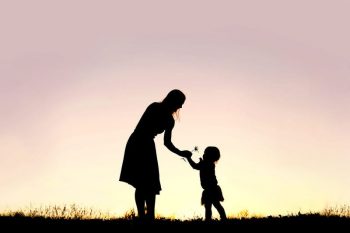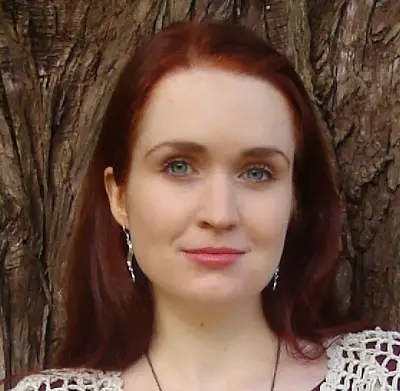Guest writer for Wake Up World
I stood staring at the crumpled, wind-battered flyer on the noticeboard. Something had stopped me in that moment, something had driven me to contemplate those words, chewing on them slowly in my mind.
It’s never too late to have a happy childhood …
I sat down from afar, staring from my solitary bench at the baby blue and sunflower yellow words, the cliche associations of flower-power, group hugs and fairy-cherubs bombarding my thoughts. Certainly, the notions associated with healing your inner child are not always universally appealing, but in that moment I instinctively knew that there was some deeper truth and value there, something powerfully healing.
And so began my quest to re-parent myself, my journey to reconnect to that lost and lonely inner child. If you are interested in creating more wholeness and happiness in your life, keep reading what I discovered.
What Was Your Childhood Like?
It’s a simple enough question, and one we all have a unique answer for. While some of us had supportive, loving and open-minded upbringings, others of us experienced neglect to varying degrees.
If you had a wonderful childhood, chances are that you are quite close and connected to that creative, childlike subpersonality within yourself as an adult. If, however, you consider your childhood as lacking or deficient in some way, you most likely experienced any combination of the following types of neglect:
1. Emotional
Your parents/guardians didn’t show interest in your emotional needs for love, support, protection and/or guidance. They either didn’t pay attention to you, or condemned emotional expressions of need from you. The likely outcome of this was that:
- You developed low self-worth and esteem for yourself.
- You began ignoring your emotional needs.
- You learnt to hide from, avoid or repress your emotions as they were associated with feelings of neglect from your childhood.
- You developed psychological or physical sicknesses connected to your inability to listen to, accept and deal with your emotions in healthy ways (e.g. emotional repression).
2. Psychological
This type of neglect was manifested in childhood by your parents/guardians who failed to listen to, embrace and nurture the person you were. As you grew older, you likely developed any variety of these symptoms:
- You developed low self-esteem issues due to forms of abuse such as ridicule, put-downs, overly high expectations, being ignored, rejected, or constantly punished.
- You developed deep-seated anger issues both from unresolved childhood trauma, and an inability to love oneself.
- You developed addictions and neurosis to create a misguided sense of comfort and safety within your life.
- You developed psychological and/or physical illnesses.
- You have problems sustaining healthy and respectful relationships.
3. Physical
At a basic and fundamental level, physical safety and nourishment is one of the most intrinsic elements of a loving relationship. We can see this in nature, with mothers and fathers nourishing their chicks, pups and cubs with food, shelter and protection. When this is lacking, however, the following issues can develop:
- Low self-worth resulting in physical neglect/abuse of oneself, e.g. eating disorders (anorexia, obesity), maintaining an unhealthy diet, self-harm.
- Intense safety-seeking behaviors (psychological complexes such as OCD) or extreme risk-taking behaviors (e.g. unprotected sex, obsessive daredevil feats, etc.)
- Addictions to drugs, alcohol, violence, food, etc.
- Sexual dysfunction or promiscuity (often due to sexual abuse).
It’s important to remember that while some – or even many – of our problems stem from childhood neglect, grudge-holding, blame and self-pity will get us nowhere. People are victims of victims, meaning that the reason why our parents/guardians behaved the way they did was most likely because of their neglected upbringing, and their parents were the way they were for similar reasons – and so on and so forth.
The real culprit here is a lack of awareness for oneself and one’s actions.
How to Re-Parent Your Inner Child
Sitting on that lonely bench staring at the blue and yellow flyer, I realized something. Our parents or guardians may have not fulfilled all our needs, or any of our needs, but we can. The concept is strange, even foreign to us, but we can be our own parents. Not only that, but we can actually re-parent ourselves if we put in enough time and effort.
The benefits?
- Greater happiness and optimism.
- Improved creativity.
- Healthier mind, body and soul.
- Stronger friendships and relationships.
- Development of essential life skills: acceptance, forgiveness, vulnerability, compassion, self-love.
From what I have experienced, witnessed, and researched, the following steps will help you to reconnect, and re-parent your inner child.
1. Be willing and open to make that connection.
Hosting any doubt, hesitation or cynicism will slow the process of healing that vulnerable, childlike side of yourself.
2. Think about what you were like as a child.
Meditate on how you felt, what you liked, disliked, and what your hobbies and passions were. Gain a clear image of who your inner child is. Looking at old photographs can stimulate many memories (and in my experience stirs a lot of emotion, so you may like to prepare yourself).
3. Encourage your childlike self to come out and “play”.
For example, try doing something you loved as a child (e.g. blowing bubbles, swinging on a set of swings, eating candy, playing with toy cars, doing handstands).
4. Introduce more “playtime” into your life.
Be silly. Do something pointless and ridiculous just for the pure enjoyment of it. As “grownups” we have this absurd unspoken belief that life must always be serious; about responsibility and duty. The quickest thing to age you is not your body, but your mindset.
5. Explore why you have been so out-of-touch with your inner child.
What was it that happened in your childhood or adolescent years that cut you off from that vulnerable, innocent and playful side of yourself? How did your parents or guardians treat you as a child? Did they cater to your emotional, psychological and/or physical needs? Did you experienced any trauma? How do your thoughts, feelings, behaviors and beliefs reflect what you experienced as a child? In order to better know yourself and the reasons why you’ve ended up in the place you are, it is essential to ask these tough questions, and seek for solid answers.
6. Take steps to provide a safe, supportive and nurturing life for yourself.
In order to truly re-parent yourself, you must develop Self-Love. You must be able to see that you are intrinsically valuable, loveable and worthy, and take steps to affirm that in your life. Such steps could include daily affirmations, e.g. “I am worthy. I honor my inner child. I am safe and loved. I have freedom and happiness.” Other steps could include changing negative habits and mindsets and replacing them with new ones, treating and rewarding yourself, as well as developing mindfulness and awareness of your fundamental emotional, psychological and physical needs.
Although we may have suffered misfortune as a child, it is never too late to re-live our childhoods and reconnect to that childlike side of ourselves. When we take responsibility for our happiness in life, we have the power to heal ourselves and create greater wholeness. This gift can never be taken away from us.
Please share your stories and recommendations below regarding your experience with your inner child. This will help us all learn and grow more!
Also by Aletheia Luna:
- Being Spiritual Doesn’t Mean Sh*t If You Can’t Hold Space for Others
- 9 Ways to Awaken the Divine Masculine Within You
About the author:
Aletheia Luna is an influential spiritual writer whose work has changed the lives of thousands of people worldwide. As a child, Aletheia Luna was raised in a fundamentalist Christian church. But after experiencing depression, isolation, and anxiety as a result of their dangerous cult teachings, she experienced a spiritual awakening at the age of 19. Since leaving and picking up the pieces of her life, Luna has dedicated herself to intense inner healing and a process she calls soulwork. Later, in 2012 she co-founded popular spiritual website, lonerwolf.com. As a mystic, spiritual mentor and soulwork therapist, her mission is to help others become conscious of their entrapment, and find joy, empowerment, and liberation in any circumstance.
This article How to Re-Parent Your Broken Inner Child was originally published on lonerwolf.com.

If you've ever found value in our articles, we'd greatly appreciate your support by purchasing Mindful Meditation Techniques for Kids - A Practical Guide for Adults to Empower Kids with the Gift of Inner Peace and Resilience for Life.
In the spirit of mindfulness, we encourage you to choose the paperback version. Delve into its pages away from screen glare and notifications, allowing yourself to fully immerse in the transformative practices within. The physical book enriches the learning process and serves as a tangible commitment to mindfulness, easily shared among family and friends.
Over the past few years, Wake Up World has faced significant online censorship, impacting our financial ability to stay online. Instead of soliciting donations, we're exploring win-win solutions with our readers to remain financially viable. Moving into book publishing, we hope to secure ongoing funds to continue our mission. With over 8,500 articles published in the past 13 years, we are committed to keeping our content free and accessible to everyone, without resorting to a paywall.









